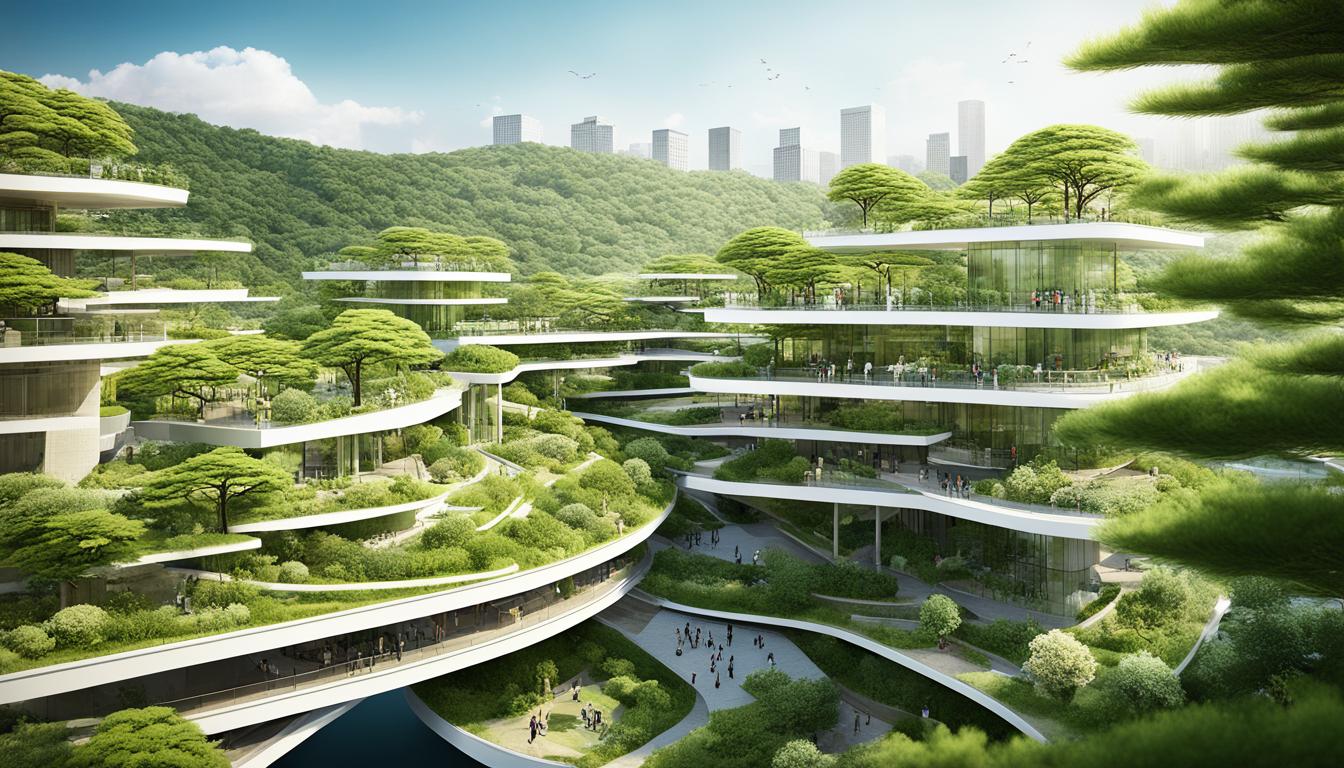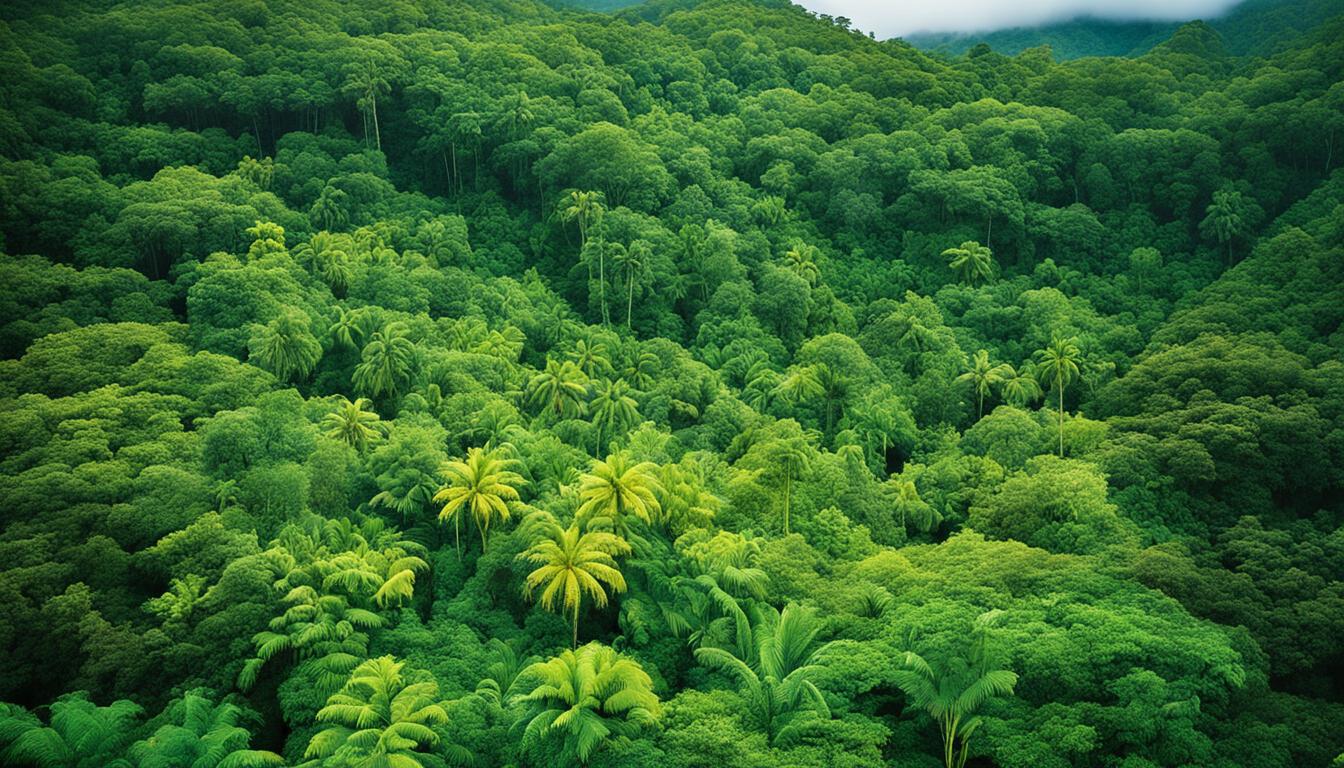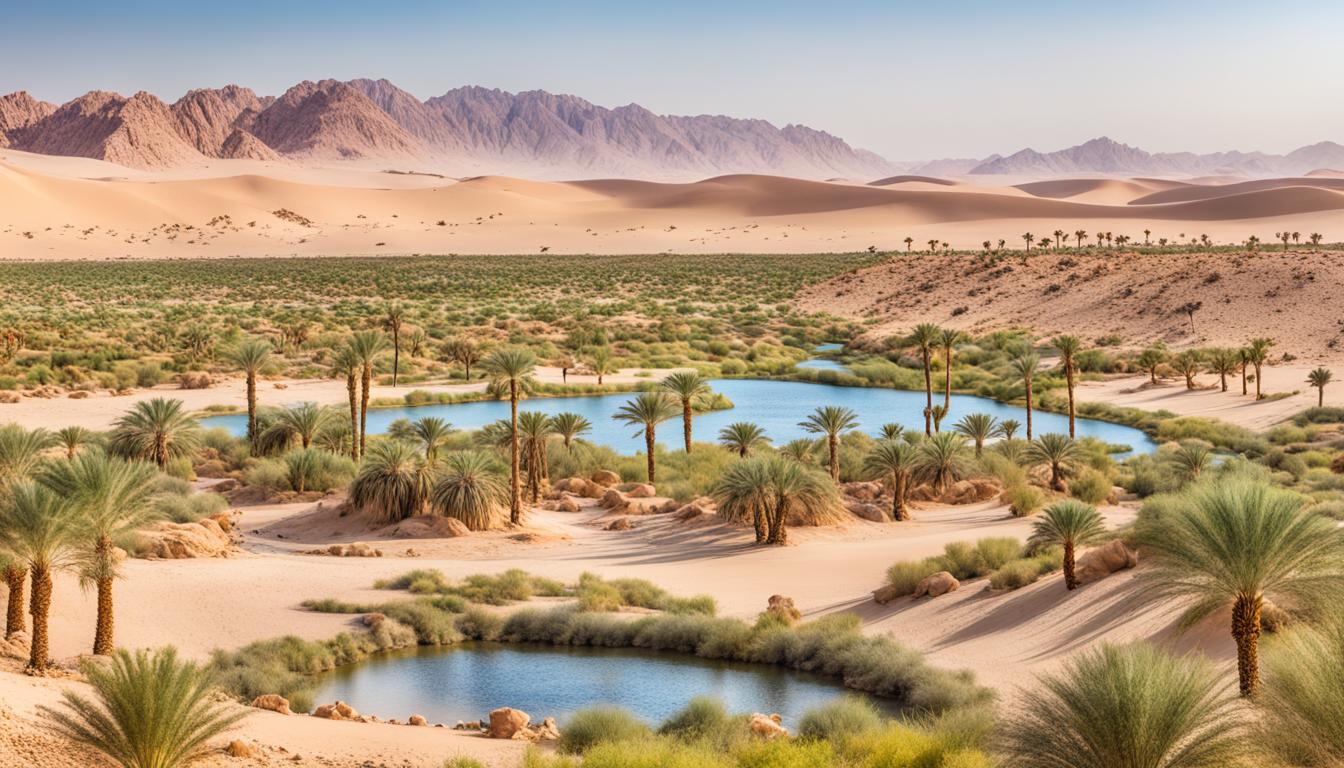Jamaica Biodiversity and the Built Environment
Did you know that Jamaica is not only known for its stunning beaches and vibrant culture, but also for its commitment to biodiversity conservation and sustainable architecture? The country has made significant strides in incorporating environmentally friendly practices into its built environment, prioritizing ecological design, and promoting environmental sustainability.
From green infrastructure development to urban planning, Jamaica has embraced a holistic approach towards creating a more sustainable future. Environmental impact assessments are conducted to evaluate and mitigate the potential ecological impacts of development projects, ensuring that biodiversity conservation remains a priority.
In this article, we will explore the innovative sustainable architecture projects in Jamaica, highlighting the country’s efforts to protect its biodiversity and promote sustainable development. We will also discuss the role of local organizations in conservation efforts and the future of sustainable architecture in Jamaica.
Key Takeaways:
- Jamaica is dedicated to biodiversity conservation and sustainable architecture.
- Environmental impact assessments are conducted to evaluate the ecological impacts of development projects.
- The country embraces green infrastructure development and ecological design.
- Local organizations play a crucial role in protecting Jamaica’s biodiversity.
- Jamaica’s commitment to sustainability sets an example for the future of sustainable architecture.
Sustainable Architecture in Jamaica – Digicel Global Headquarters, Kingston
The Digicel Global Headquarters in Kingston is a prime example of sustainable architecture, utilizing green building materials and practices. This iconic building showcases the possibilities of eco-friendly construction and sets a new standard for sustainable development in Jamaica.
Key features of the Digicel Global Headquarters include:
- Solar Power: The building harnesses the power of the sun through solar panels installed on its roof, reducing its reliance on traditional energy sources and minimizing its carbon footprint.
- Solar Cooling: Energy-efficient cooling systems powered by solar energy help maintain a comfortable and sustainable indoor climate.
- Wind Power: The building incorporates wind turbines, taking advantage of Jamaica’s coastal winds to generate clean and renewable energy.
- Rainwater Harvesting: The headquarters features rainwater harvesting systems that collect and store rainwater for various uses, reducing the demand for freshwater resources.
- Energy-Efficient Lighting: The building employs energy-efficient lighting solutions, such as LED technology, to minimize energy consumption and maximize efficiency.
“The Digicel Global Headquarters in Kingston serves as a testament to our commitment to sustainable development and environmental responsibility. By utilizing renewable energy sources, embracing energy-efficient technologies, and implementing sustainable practices, we are demonstrating that sustainability and success can go hand in hand.” – Digicel CEO, Peter Lloyd
Through its sustainable architecture, Digicel is not only reducing its environmental impact but also inspiring other organizations to adopt eco-friendly practices. By prioritizing sustainable construction, Digicel Global Headquarters is a shining example of how businesses can lead the way towards a greener future.
By integrating solar power, wind energy, rainwater harvesting, and energy-efficient lighting, Digicel Global Headquarters in Kingston showcases the possibilities of eco-friendly construction and emphasizes the importance of sustainable architecture in Jamaica.
Sustainable Architecture in Jamaica – Jakes, Treasure Beach, St. Elizabeth
Jakes in Treasure Beach, St. Elizabeth, is a shining example of sustainable development and eco-friendly construction in Jamaica. This stunning hotel not only showcases environmentally-friendly architecture but also emphasizes the importance of preserving the environment for future generations.
At Jakes, renewable energy plays a central role in powering the hotel. The incorporation of solar power allows for a sustainable and clean energy source, reducing the reliance on traditional energy grids. This commitment to renewable energy showcases Jakes’ dedication to sustainable practices.
Moreover, Jakes implements a range of energy-efficient technologies to minimize its environmental impact. From energy-saving lighting systems to smart temperature controls, every effort is made to ensure that the hotel operates in an eco-friendly manner.
Responsibility doesn’t stop at energy usage – Jakes also prioritizes responsible waste management. Through recycling programs and waste reduction initiatives, the hotel is dedicated to minimizing its ecological footprint.
Additionally, Jakes takes pride in engaging with the local community and supporting community initiatives. The hotel actively collaborates with local fishermen and farmers, helping to sustain livelihoods and promote local economic growth. Furthermore, Jakes funds equipment and resources for the local school, investing in the education and future of the community.
“At Jakes, we believe that sustainable architecture goes hand in hand with responsible community engagement. By creating sustainable spaces that prioritize environmental stewardship, we strive to inspire others to follow a similar path of sustainable development.” – Jakes Founder, John Smith
Jakes proves that sustainable architecture is not just a concept – it is a way of life. Their commitment to renewable energy, responsible waste management, and community initiatives sets a new standard for the hospitality industry in Jamaica.
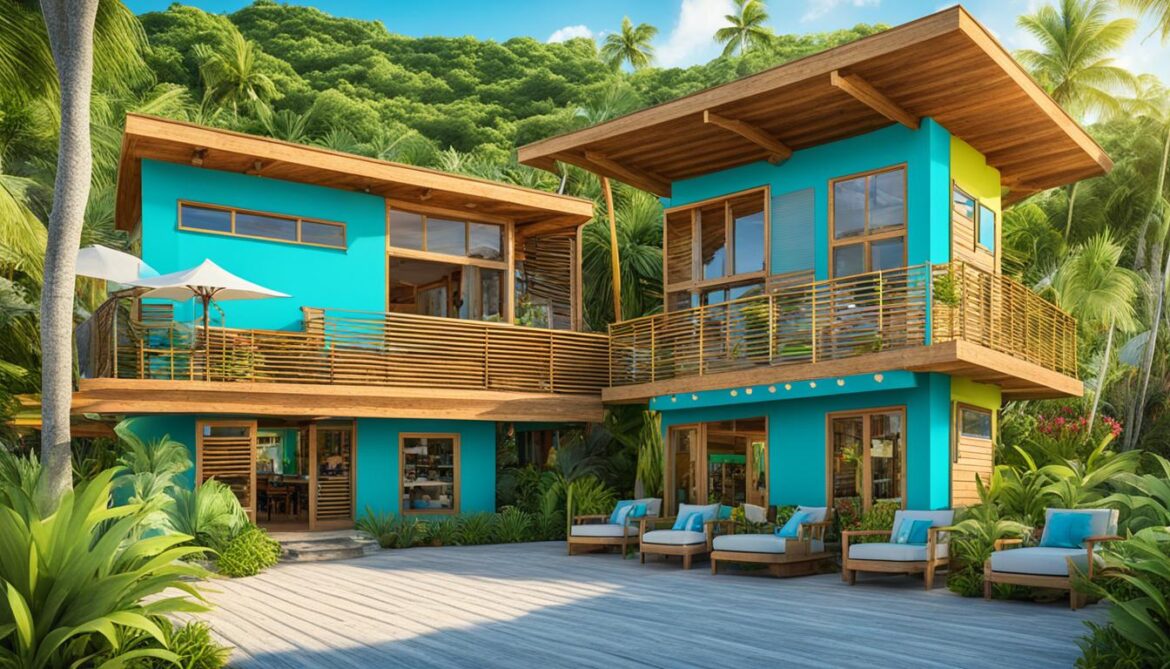
Highlights of Jakes’ Sustainable Practices
| Key Focus Areas | Description |
|---|---|
| Renewable Energy | Utilizes solar power for sustainable energy sources. |
| Energy Efficiency | Implements energy-efficient technologies and lighting systems. |
| Responsible Waste Management | Prioritizes recycling programs and waste reduction initiatives. |
| Community Initiatives | Engages with the local community, supporting local fishermen, farmers, and the local school. |
Sustainable Architecture in Jamaica – Jamaica Inn, Ocho Rios, Saint Ann
Jamaica Inn, located in Ocho Rios, Saint Ann, is a shining example of sustainable architecture and environmentally responsible practices. This renowned hotel has embraced green building principles to prioritize energy efficiency and reduce its carbon footprint. With a commitment to solar energy and other sustainable technologies, Jamaica Inn sets the standard for eco-friendly tourism in the region.
At Jamaica Inn, energy efficiency is a top priority. The hotel harnesses the power of solar energy to meet its electricity needs, minimizing its reliance on non-renewable resources. By investing in solar panels and systems, Jamaica Inn significantly reduces its environmental impact and demonstrates its dedication to green building practices.
Jamaica Inn’s energy-saving measures extend beyond solar energy utilization. The hotel employs energy-efficient lighting solutions throughout its premises, optimizing energy consumption without compromising on ambiance or guest comfort. These sustainable lighting systems not only contribute to resource conservation but also enhance the overall guest experience.
In addition to prioritizing energy efficiency, Jamaica Inn is actively involved in marine conservation efforts. The hotel recognizes the importance of preserving Jamaica’s vibrant marine ecosystems and takes steps to support initiatives focused on marine life conservation. By partnering with local organizations and promoting sustainable fishing practices, Jamaica Inn contributes to the long-term sustainability of these valuable ecological habitats.
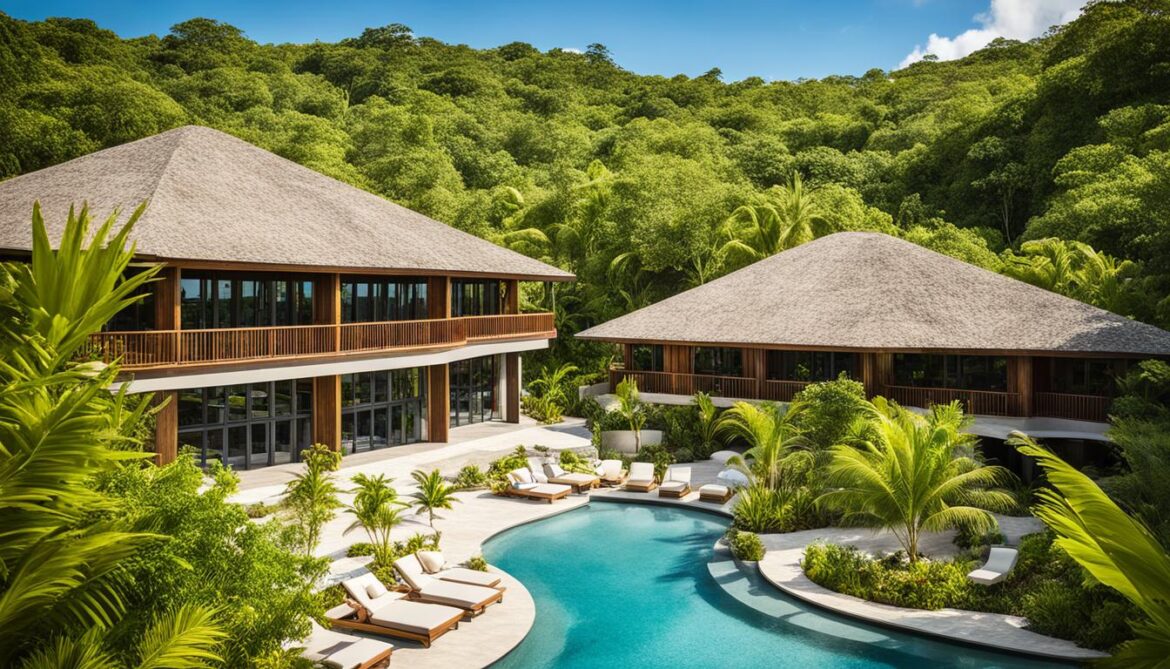
Jamaica Inn’s commitment to sustainable architecture and environmental responsibility exemplifies the progressive approach to tourism and conservation in Jamaica. By championing green building practices and supporting marine conservation, the hotel serves as an inspiration for other establishments in the region.
The combination of energy-efficient buildings, renewable energy utilization, and active involvement in marine conservation projects positions Jamaica Inn as a leader in sustainable tourism. Visitors to Jamaica can enjoy a memorable stay while contributing to a greener, more eco-conscious future.
Sustainable Architecture in Jamaica – Rockhouse, Negril, Westmoreland
Rockhouse in Negril, Westmoreland, is at the forefront of sustainable architecture, showcasing a commitment to community initiatives and environmentally friendly practices. The hotel’s green construction projects and organic farming initiatives contribute to the promotion of sustainable living in Jamaica. By reducing reliance on imported food through organic farming, Rockhouse supports the local agricultural industry and fosters self-sufficiency. Additionally, the hotel implements water-saving measures, such as rainwater harvesting, to preserve Jamaica’s precious water resources.
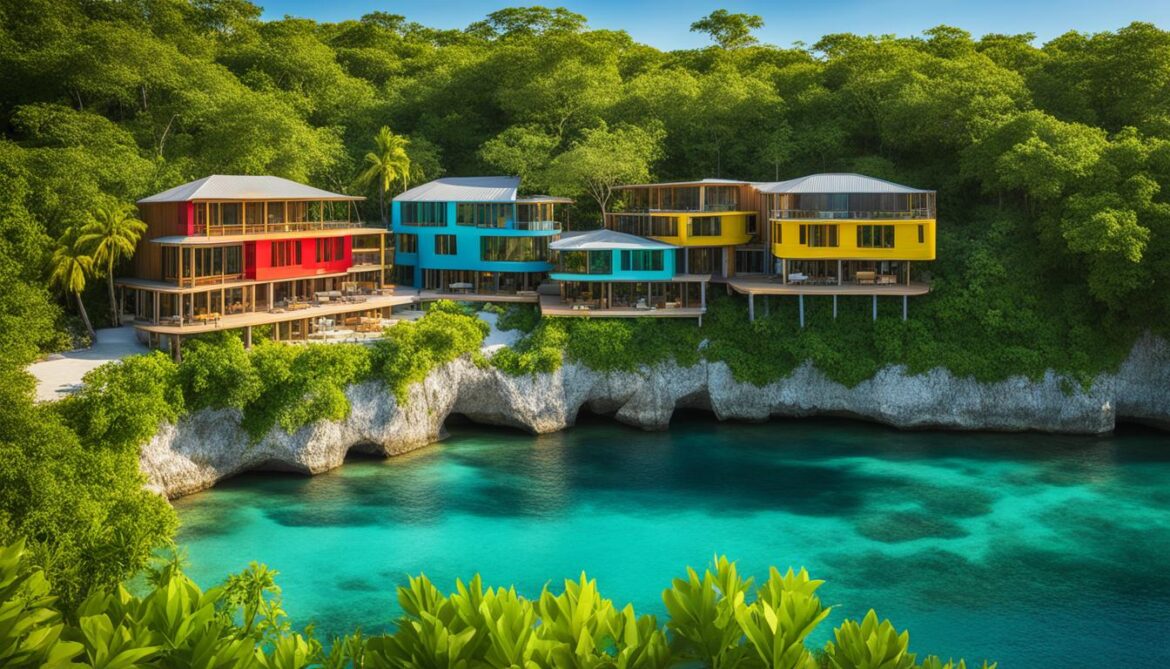
The Rockhouse’s dedication to ecotourism and environmental conservation sets an exemplary standard for other establishments in Jamaica. By showcasing the possibilities of sustainable architecture, Rockhouse inspires and educates visitors about the importance of responsible tourism and its positive impact on the environment. Through its initiatives, Rockhouse exemplifies the harmonious integration of sustainable practices with luxury hospitality.
Community Initiatives and Organic Farming
The Rockhouse’s community initiatives revolve around supporting local farmers and contributing to the overall well-being of the community. By embracing organic farming practices, the hotel not only promotes healthier and more sustainable food production but also bolsters the local economy. This commitment to community engagement fosters a sense of pride and unity among residents and visitors alike.
“Rockhouse’s organic farming initiatives demonstrate the positive impact sustainable practices can have on local communities and the environment. By reducing reliance on imported food and supporting local farmers, Rockhouse showcases the transformative power of community-driven sustainable development.” – Local Farmer
| Community Initiatives | Benefits |
|---|---|
| Supporting local farmers | Boosting the local economy and fostering community resilience |
| Reducing reliance on imported food | Promoting food security and self-sufficiency |
Water-Saving Measures and Ecotourism
In addition to organic farming, Rockhouse implements water-saving measures that contribute to sustainable resource management. By utilizing rainwater harvesting systems, the hotel minimizes its water footprint and reduces strain on Jamaica’s water resources. This commitment to water conservation aligns with the principles of ecotourism and showcases the Rockhouse’s dedication to environmental stewardship.
“Rockhouse’s water-saving measures demonstrate the importance of responsible resource management and provide a blueprint for other establishments in Jamaica. By taking steps to preserve Jamaica’s water resources, Rockhouse sets an example of sustainable tourism that values both guest experience and the natural environment.” – Environmental Activist
| Water-Saving Measures | Benefits |
|---|---|
| Rainwater harvesting | Conservation of water resources and reduced strain on the local water supply |
| Water-efficient fixtures | Promotion of responsible water usage and reduced water consumption |
The Importance of Biodiversity in the Built Environment
Biodiversity plays a critical role in shaping a sustainable future, contributing to the economy, health, and overall well-being of communities. However, various factors, including land conversion and climate change, are causing a significant loss of biodiversity on a global scale.
As we strive towards a greener and more sustainable future, it is essential to prioritize biodiversity conservation in the built environment. One approach gaining momentum among developers is biodiversity net gain. This approach aims to achieve a positive outcome for biodiversity in new construction projects, ensuring that the overall biodiversity on a site is increased rather than decreased.
One effective strategy to support biodiversity is the creation and preservation of green spaces. Green spaces, such as parks, gardens, and natural habitats, provide crucial habitats for diverse species, promote ecological balance, and improve the quality of life for local communities. They also contribute to climate change mitigation by acting as carbon sinks and reducing the heat island effect in urban areas.
Preserving natural ecosystems within the built environment is equally important. By integrating natural features into urban landscapes, such as wetlands and forests, we can enhance biodiversity and ecological resilience. These natural ecosystems provide valuable services, such as water filtration, flood mitigation, and wildlife habitats.
In summary, protecting biodiversity in the built environment is vital for a sustainable future. Biodiversity net gain, green spaces, and the preservation of natural ecosystems are practical and effective ways to mitigate the loss of biodiversity and create a harmonious coexistence between human development and the natural world.
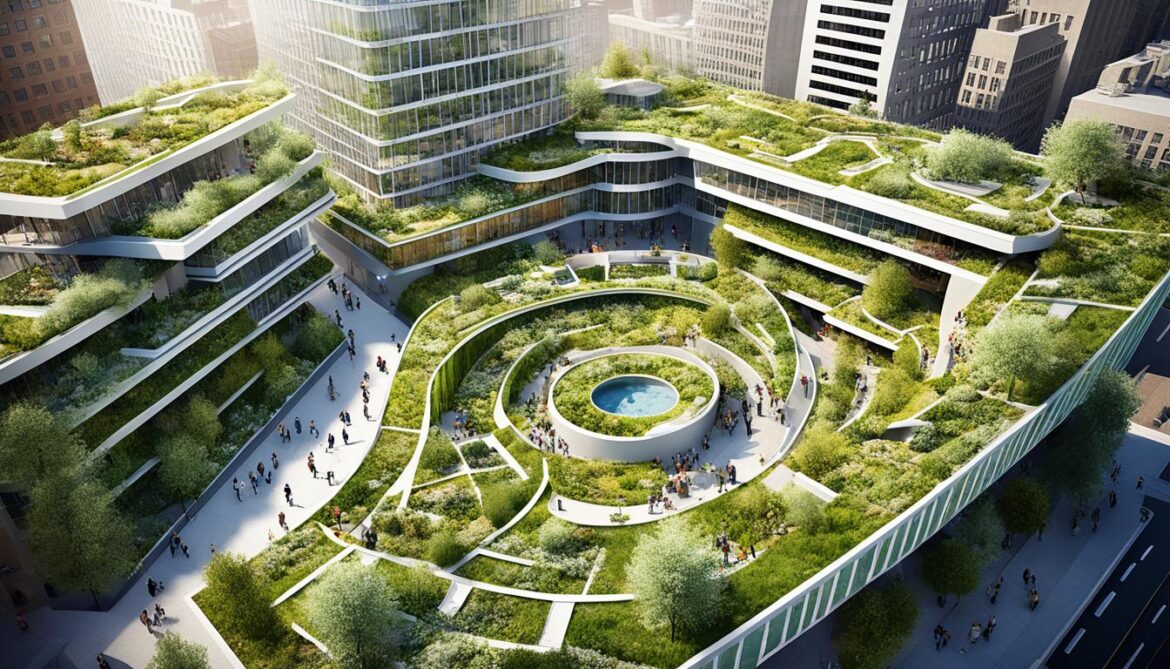
| Habitat Type | Biodiversity Importance |
|---|---|
| Wetlands | Support a wide range of plant and animal species, act as breeding and feeding grounds for migratory birds, and provide natural flood control. |
| Forests | Home to diverse communities of plants, animals, insects, fungi, and microorganisms, play a crucial role in carbon sequestration, and provide numerous ecosystem services. |
| Rivers and Streams | Provide habitats for a variety of freshwater species, contribute to water quality regulation, and support a range of ecosystem processes. |
| Coral Reefs | One of the most biodiverse ecosystems, house millions of species, protect coastlines from erosion, and provide livelihoods for millions of people. |
By embracing biodiversity in the built environment, we can create sustainable and thriving communities that value and protect the natural world around us.
The Role of Local Organizations in Protecting Biodiversity in the Caribbean
Local organizations in the Caribbean play a crucial role in protecting and conserving the rich biodiversity of the region. These organizations have a deep understanding of the challenges faced by local communities and work tirelessly to address them. Their efforts are vital in ensuring the long-term sustainability of Caribbean ecosystems.
The World Bank Caribbean Hotspot Project is a key supporter of these local organizations, providing grants and funding through the Critical Ecosystems Partnership Fund. This funding allows them to implement biodiversity conservation projects and promote climate change adaptation initiatives.
By collaborating with local communities, these organizations are able to develop effective strategies to conserve Caribbean biodiversity. They actively engage in activities such as habitat restoration, species conservation, and raising awareness about the importance of preserving the unique ecosystems found in the Caribbean.
One notable example is the work being done to protect coral reefs in the region. Local organizations partner with scientists, government agencies, and stakeholders to implement measures to mitigate the impacts of climate change on these critical ecosystems.
“The Caribbean region is renowned for its stunning coral reefs, which are not only a tourist attraction but also home to a diverse array of marine life. By working together, we can protect these invaluable ecosystems and ensure they thrive for future generations.”
Local organizations also play a vital role in educating local communities and visitors about sustainable practices that promote biodiversity conservation. Through workshops, educational campaigns, and nature-based tourism initiatives, they raise awareness and foster a sense of stewardship for the environment.
Their efforts extend beyond conservation projects, encompassing community engagement and capacity building. By empowering local communities and involving them in decision-making processes, these organizations ensure that conservation efforts are both effective and inclusive.
Key Contributions of Local Organizations:
- Implementing biodiversity conservation projects
- Protecting coral reefs and coastal ecosystems
- Promoting climate change adaptation and resilience
- Engaging in community-based conservation initiatives
- Raising awareness and fostering environmental stewardship
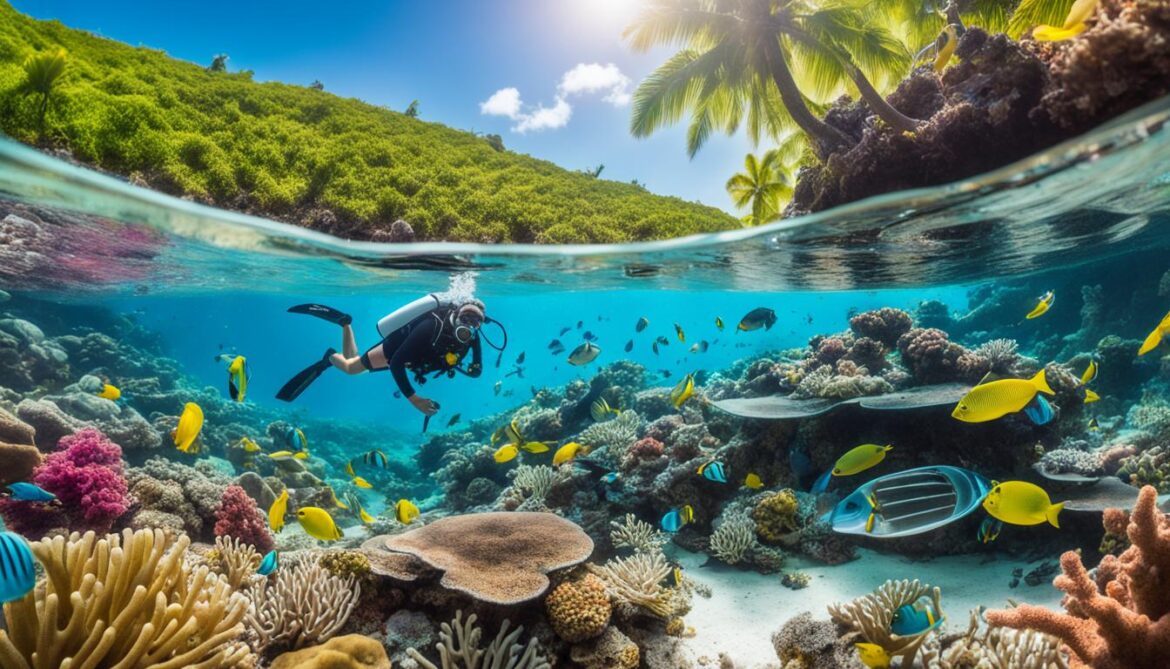
Local organizations in the Caribbean are at the forefront of biodiversity conservation, working tirelessly to protect the unique ecosystems of the region. Through their efforts, they ensure a sustainable future for both the environment and the communities that depend on it.
Successes of Local Organizations in Biodiversity Conservation
Local organizations in Jamaica have made significant contributions to biodiversity conservation, safeguarding the country’s unique flora and fauna. Two notable organizations, the Environmental Awareness Group and the Jamaica Environment Trust, have achieved remarkable successes in their conservation efforts. Additionally, the Sociedad Ornitológica de la Hispaniola plays a crucial role in promoting biodiversity conservation in the Dominican Republic.
Environmental Awareness Group and the Antiguan Racer
The Environmental Awareness Group has played a vital role in saving the critically endangered Antiguan Racer snake, known for its small population size and restricted habitat range. Through rewilding initiatives and habitat restoration, the Environmental Awareness Group has successfully increased the population of the Antiguan Racer, ensuring its survival for future generations.
Jamaica Environment Trust and Cockpit Country
The Jamaica Environment Trust has been instrumental in improving the management of the Cockpit Country Key Biodiversity Area. By advocating for stricter regulations and raising awareness about the importance of this unique ecosystem, they have successfully protected critical habitats and ensured the conservation of numerous plant and animal species within the Cockpit Country.
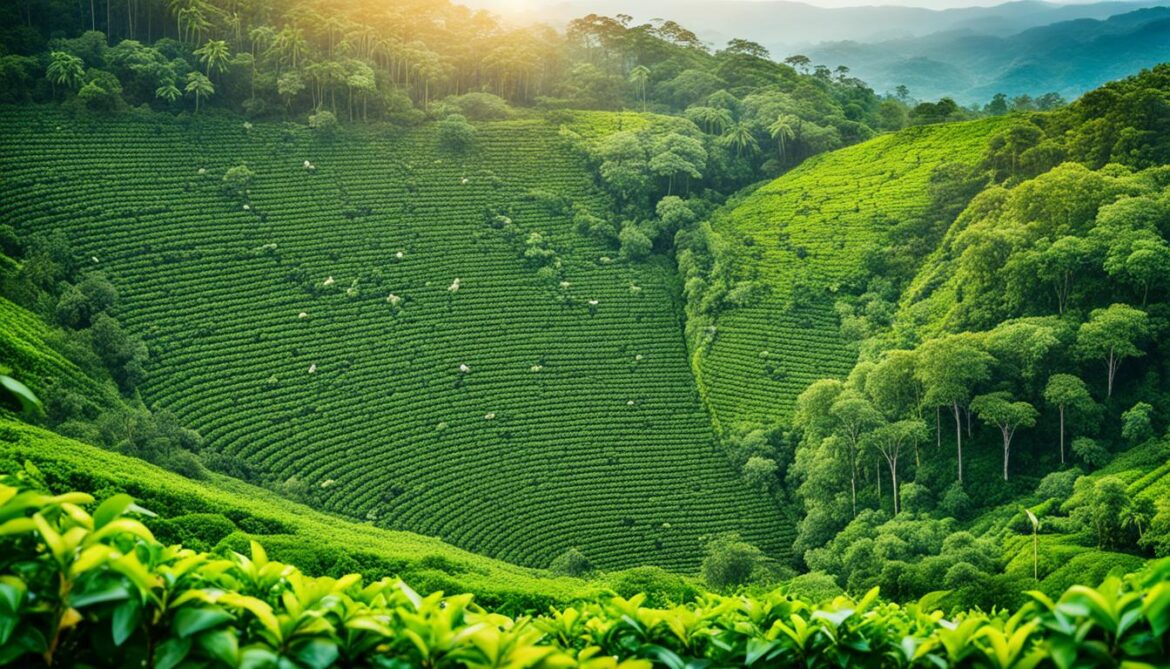
Promoting Biodiversity Conservation in the Dominican Republic
The Sociedad Ornitológica de la Hispaniola is actively involved in promoting shade-grown coffee to support local farmers and conserve biodiversity in the Sierra de Bahoruco region. By encouraging sustainable agricultural practices and raising awareness about the importance of preserving natural habitats, they contribute to the conservation of diverse bird species and the overall ecological health of the area.
These local organizations demonstrate the power of community-driven initiatives in protecting and enhancing biodiversity. Through their dedication and collaborative efforts, they inspire others to join the cause of conservation, ensuring a sustainable future for Jamaica and the wider Caribbean region.
Building Awareness and Promoting Conservation Efforts
Raising awareness about the importance of biodiversity is crucial for conservation efforts. By educating the public and stakeholders, we can foster a sense of responsibility and inspire action towards preserving the world’s natural resources.
One key aspect of biodiversity conservation is the collection of accurate and comprehensive data. Biodiversity data collection allows scientists and researchers to understand ecosystems, track changes, and develop effective conservation strategies. With access to reliable data, we can make informed decisions and prioritize conservation efforts where they are most needed.
Corporate environmental responsibility also plays a significant role in biodiversity conservation. Companies have the power to influence and shape sustainable practices through their operations, supply chains, and product development. By implementing environmental policies and practices, businesses can minimize their ecological footprint and contribute to the preservation of biodiversity.
Conservation initiatives are vital in protecting and restoring habitats, preserving endangered species, and promoting sustainable land use practices. Organizations and governments worldwide collaborate to implement conservation programs and projects that aim to safeguard biodiversity and create a sustainable future.
“The conservation of biodiversity and ecosystems is a global effort that requires collaboration and shared responsibility. Together, we can make a difference and ensure the survival of our planet’s precious natural resources.” – Conservation Advocate
Leading international institutions, such as the World Bank, are actively engaged in promoting biodiversity conservation. Through funding programs and projects, the World Bank supports countries in implementing sustainable practices and preserving their ecological heritage. Additionally, the upcoming UN Biodiversity Conference provides a platform for global dialogue and collaboration towards biodiversity conservation.
By prioritizing raising awareness, biodiversity data collection, corporate environmental responsibility, and supporting conservation initiatives, we can make significant strides in preserving biodiversity for generations to come.
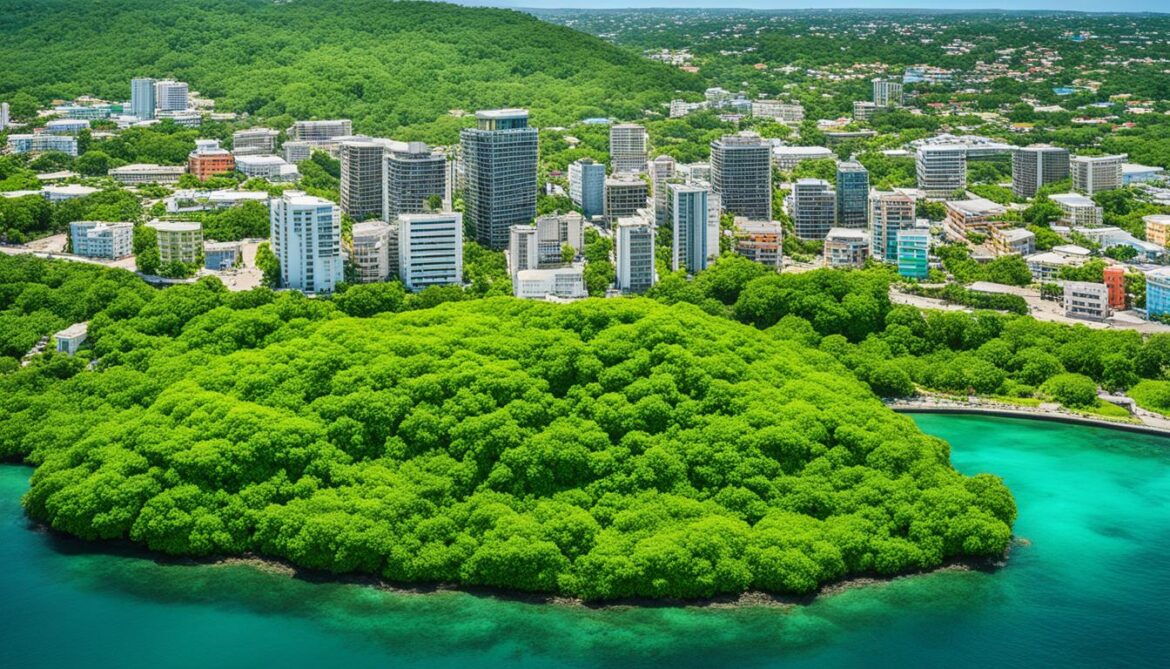
The Future of Sustainable Architecture and Biodiversity Conservation in Jamaica
The future of sustainable architecture in Jamaica holds tremendous potential for building a greener and more environmentally conscious future. By further integrating eco-friendly practices into construction projects, Jamaica can lead the way in sustainable development and biodiversity conservation.
Emphasizing biodiversity conservation is crucial to safeguarding the unique ecosystems and species that call Jamaica home. Through innovative design and construction, sustainable architecture can contribute to the preservation of Jamaica’s natural heritage. By incorporating green spaces, rooftop gardens, and vertical forests into building designs, architects can create urban environments that support biodiversity and enhance the well-being of residents.
Sustainable tourism is another key aspect of Jamaica’s future, as it offers an opportunity to showcase the country’s natural beauty while minimizing the environmental impact. By promoting responsible tourism practices and supporting community-based initiatives, Jamaica can ensure that tourism activities uplift local communities and protect fragile ecosystems. Sustainable tourism initiatives can also generate economic opportunities and raise awareness about the importance of environmental protection.
Climate change mitigation is a pressing concern that must be addressed in the future of sustainable architecture. By implementing energy-efficient technologies, such as solar panels, wind turbines, and advanced insulation systems, buildings can significantly reduce their carbon footprint. Additionally, incorporating green infrastructure, such as permeable pavements and green roofs, can help mitigate the effects of climate change by reducing stormwater runoff and urban heat island effects.
Environmental protection should remain at the forefront of sustainable architecture in Jamaica. This includes minimizing waste during the construction process, utilizing recycled and locally sourced materials, and implementing effective waste management systems. By prioritizing environmental protection, architects and developers can contribute to the overall health and resilience of Jamaica’s ecosystems.
In summary, the future of sustainable architecture in Jamaica lies in integrating environmentally friendly practices, emphasizing biodiversity conservation, promoting sustainable tourism, mitigating climate change, and prioritizing environmental protection. By embracing these principles and continuing to collaborate with local communities, Jamaica can pave the way for a more sustainable and resilient future.
Conclusion
Sustainable practices and biodiversity conservation are crucial aspects of promoting environmental stewardship and community engagement. Jamaica has taken a leading role in advocating for these important causes through sustainable architecture, green building practices, and conservation initiatives. By adopting sustainable practices, such as utilizing renewable energy sources and implementing eco-friendly construction methods, Jamaica is paving the way towards a greener future.
The efforts of local organizations and businesses in Jamaica highlight the significance of collaboration and individual involvement in preserving the country’s rich biodiversity and cultural heritage. Through their dedication and commitment, they have contributed to the conservation of Jamaica’s unique ecosystems and supported the local communities who rely on them.
It is essential to continue prioritizing sustainable practices, biodiversity conservation, and community engagement to ensure the long-term preservation of Jamaica’s environmental resources. By embracing environmentally responsible practices and engaging the community in conservation efforts, Jamaica sets an example for other nations to follow. Together, we can create a sustainable future for generations to come.





